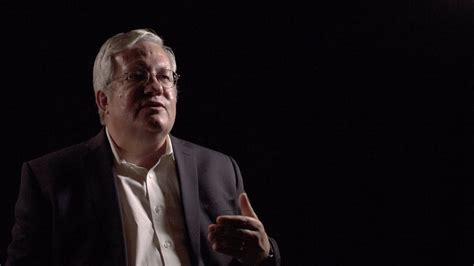A Quote by Carroll Quigley
The hope for the twentieth century rests on recognition that war and depression are man-made, and needless. They can be avoided in the future by turning from the nineteenth-century characteristics just mentioned (materialism, selfishness, false values, hypocrisy, and secret vices) and going back to other characteristics that our Western Society has always regarded as virtues: generosity, compassion, cooperation, rationality, and foresight, and finding a increased role in human life for love, spirituality, charity, and self discipline.
Quote Topics
Always
Avoided
Back
Century
Characteristics
Charity
Compassion
Cooperation
Depression
Discipline
False
Finding
Foresight
Future
Generosity
Going
Hope
Human
Human Life
Hypocrisy
Increased
Just
Life
Love
Made
Man
Man-Made
Materialism
Mentioned
Needless
Other
Our
Rationality
Recognition
Regarded
Rests
Role
Secret
Self
Self Discipline
Selfishness
Society
Spirituality
Turning
Twentieth
Twentieth Century
Values
Vices
Virtues
War
Western
Western Society
Related Quotes
In the middle of the nineteenth century, the United States embarked on a new relationship with death, entering into a civil war that proved bloodier than any other conflict in American history, a war that would presage the slaughter of World War I's Western Front and the global carnage of the twentieth century.
Given that the nineteenth century was the century of Socialism, of Liberalism, and of Democracy, it does not necessarily follow that the twentieth century must also be a century of Socialism, Liberalism and Democracy: political doctrines pass, but humanity remains, and it may rather be expected that this will be a century of authority ... a century of Fascism. For if the nineteenth century was a century of individualism it may be expected that this will be the century of collectivism and hence the century of the State.
One of the major changes in attitude that occurred in the world of art as we moved from the nineteenth into the twentieth century was that the twentieth century artist became more involved with personal expression than with celebrating exclusively the values of the society or the church. Along with this change came a broader acceptance of the belief that the artist can invent a reality that is more meaningful than the one that is literally given to the eye. I subscribe enthusiastically to this.
In the eighteenth century it was often convenient to regard man as a clockwork automaton. In the nineteenth century, with Newtonian physics pretty well assimilated and a lot of work in thermodynamics going on, man was looked on as a heat engine, about 40 per cent efficient. Now in the twentieth century, with nuclear and subatomic physics a going thing, man had become something which absorbs X-rays, gamma rays and neutrons.
Modernism really started with people getting infatuated with the idea of "it's the twentieth century, is this suitable for the twentieth century." This happened before the First World War and it wasn't just the soldiers. You can see it happening if you read the Bloomsbury biographies. It was a reaction to a great extent against Victorianism. There was so much that was repressive and stuffy. Victorian buildings were associated with it, and they were regarded as very ugly. Even when they weren't ugly, people made them ugly. They were painted hideously.
It was only in the late nineteenth century and then the twentieth century, with the maturation of consumer capitalism, that a shift was made toward the cultivation of unbounded desire. We must appreciate this to realize that late modern consumption, consumption as we now know it, is not fundamentally about materialism or the consumption of physical goods. Affluence and consumer-oriented capitalism have moved us well beyond the undeniable efficiencies and benefits of refrigeration and indoor plumbing.
In this century the writer has carried on a conversation with madness. We might almost say of the twentieth-century writer that he aspires to madness. Some have made it, of course, and they hold special places in our regard. To a writer, madness is a final distillation of self, a final editing down. It's the drowning out of false voices.





































